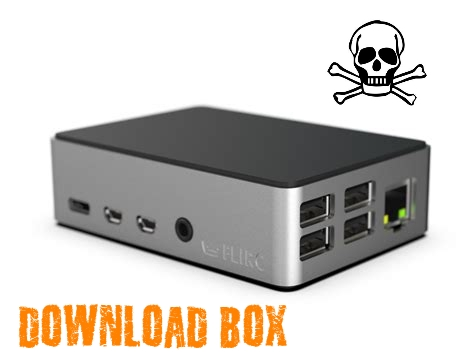this post was submitted on 22 Aug 2023
52 points (94.8% liked)
Piracy: ꜱᴀɪʟ ᴛʜᴇ ʜɪɢʜ ꜱᴇᴀꜱ
55056 readers
297 users here now
⚓ Dedicated to the discussion of digital piracy, including ethical problems and legal advancements.
Rules • Full Version
1. Posts must be related to the discussion of digital piracy
2. Don't request invites, trade, sell, or self-promote
3. Don't request or link to specific pirated titles, including DMs
4. Don't submit low-quality posts, be entitled, or harass others
Loot, Pillage, & Plunder
📜 c/Piracy Wiki (Community Edition):
💰 Please help cover server costs.
 |
 |
|---|---|
| Ko-fi | Liberapay |
founded 2 years ago
MODERATORS
you are viewing a single comment's thread
view the rest of the comments
view the rest of the comments


OK, thanks.
Yeah I'd rather not be too reliant on my (limited) command line skills!
Hopefully the Pi4 with 8gb is comfortable enough with a slightly heavier distro.
Plenty of mainstream distros have versions designed with an RPi in mind. They should be designed lightweight for that purpose, but also the default version for rpi is called raspbian, and it tends to have the most support for rpi applications. If you're not committed to a particular distro for any reason that's a good place to start. All the software should work regardless.
If you want the whole setup to be headless (no screen), you'll have to do a lot of work in the command line. If you want a screen to play things on, well then just the regular OS version should be fine.
It's also possible to set it up with VNC so you have a headless server that can give you a desktop over the network: https://desertbot.io/blog/headless-raspberry-pi-4-remote-desktop-vnc-setup
Anything serving a desktop will be more resource intensive. I'm pretty sure the VNC option should have minimal impact whenever you're not connected to it.
Also though, no matter what you do, it's linux so you should accept that you'll need to spend some time in the command line to get things done. It's getting better with making things accessible via GUIs but I think it may always have a heavier reliance on the CLI because of the hacker nature of it.
It will be living in the home office pretty close to a monitor, so I'm happy enough to plug it in and use a screen to set everything up. But hopefully once it's up and running, I'll rarely need to use a screen and can check on the apps via a browser on my laptop/tablet/phone.
In any case, I'll check out the VNC option linked above, thanks.
I guess it probably makes sense to start with Raspbian then and see how that goes first.
I've also heard about OSMC, which is media player centric distro. Although given I am not actually using this thing as a front end (at least for now), that might be a waste.
Dietpi, which has already been recommended, has a web dashboard you can use to control a bunch of stuff so you don't have to have a gui